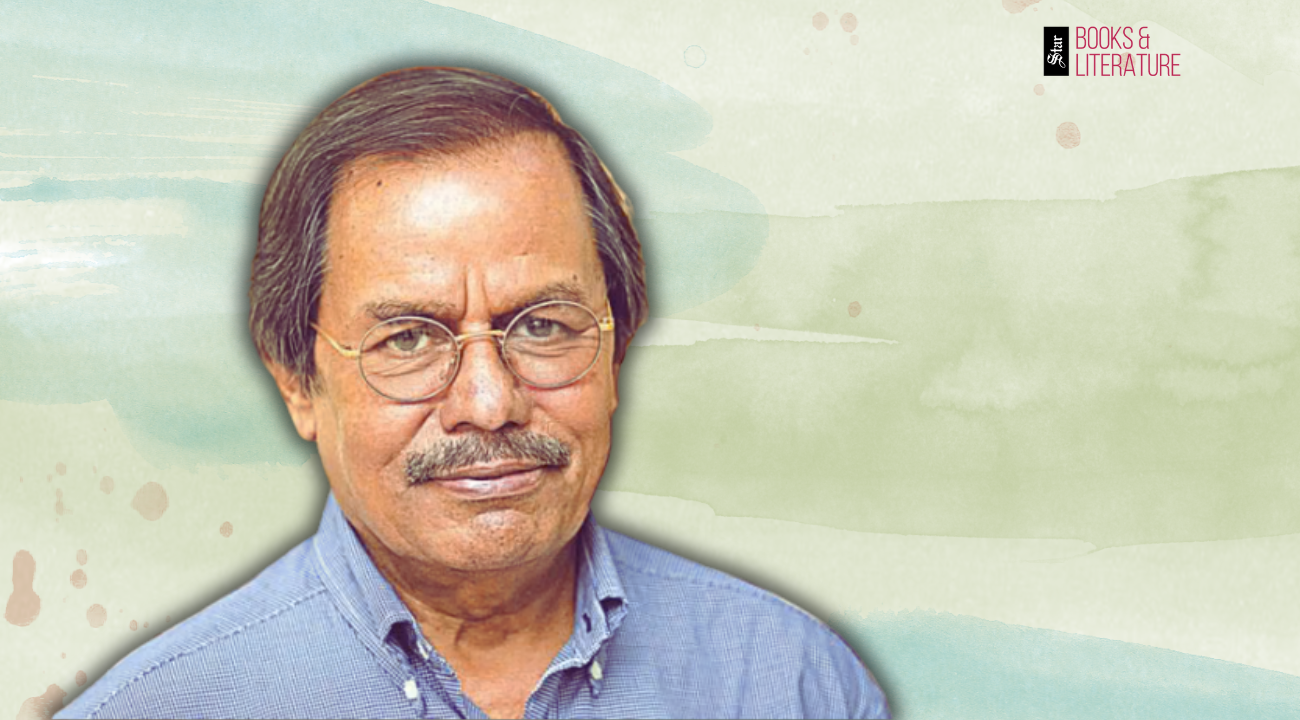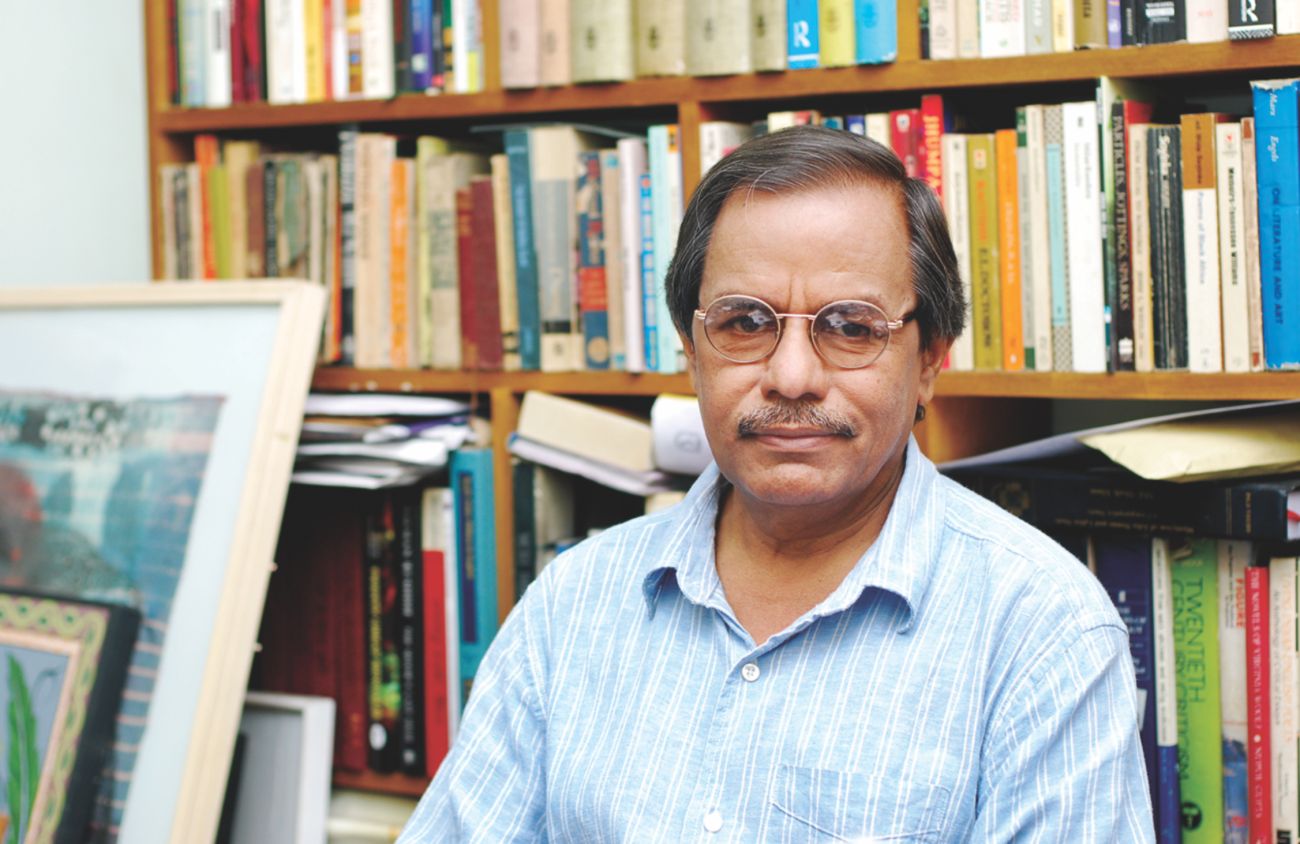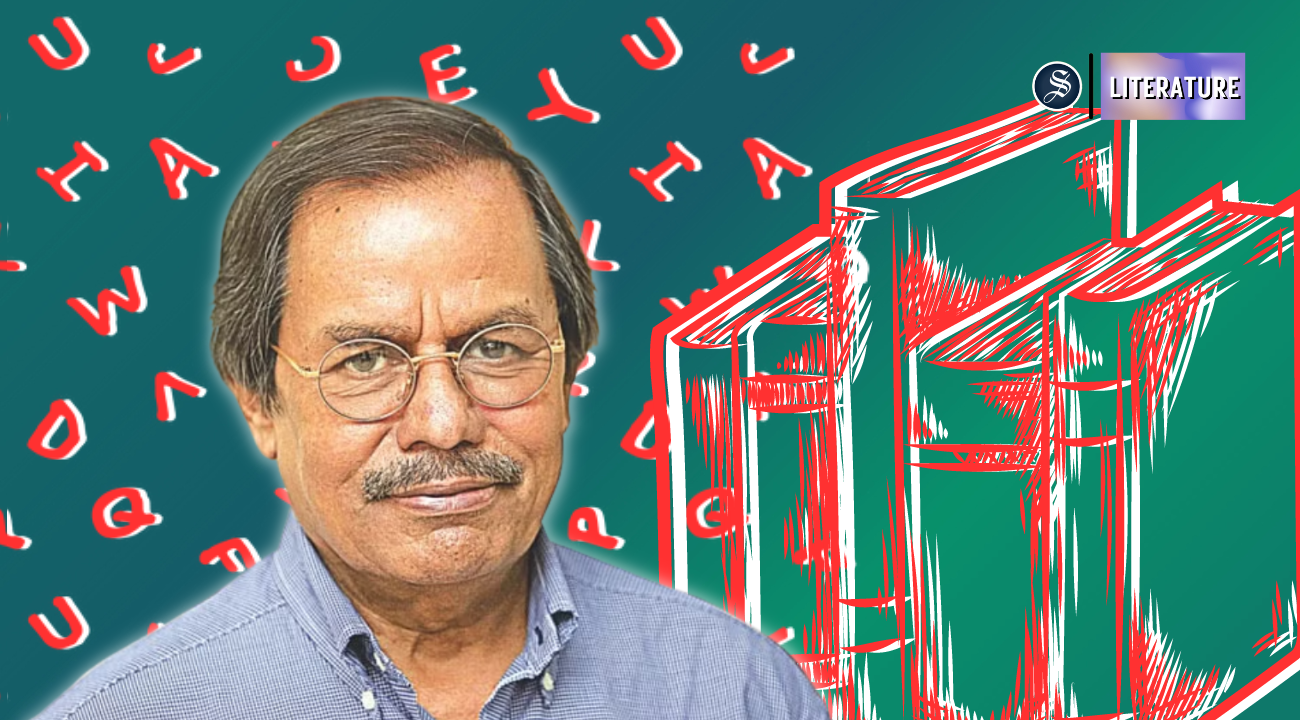Syed Manzoorul Islam: Teacher, taleweaver, torchbearer, trailblazer

Syed Manzoorul Islam—our foremost fiction writer, cultural critic, educationist, teacher, and professor emeritus of Dhaka University (DU)—died on Friday, October 10.
Died?
That word itself remains a question in more ways than one. Living outside the country, I first heard of his massive heart attack from my teacher, Professor Kaiser Haq, who generously kept me updated with news that swung between fragile progress and sudden decline. Each glimmer of progress offered hope, and I held onto that hope until the devastating news of his death arrived. "Progress is history's dirty joke," as Professor Islam's favourite poet Derek Walcott would say on another register.
And I cannot resist recalling that class on metaphysical poetry where Professor Islam so memorably taught us John Donne's provocatively ratiocinative sonnet "Death, be not proud." How ironic that the very teacher who first introduced us, as second-year undergraduates, to Donne's defiance of death is now "gone." And yet, his words, his works, his world remain alive in our stories and memories. If death is but a "short sleep," then Professor Islam has only entered another waking, while we carry his legacy. Truly, as Donne asserts, "Death, thou shalt die." Syed Manzoorul Islam's life is truer than his death.
I first heard of Professor Islam—before I ever met him—through my English teacher at Residential Model School, Mushtaq Ahmed, and through my high school classmate, my friend, Hafiz Sikander Tony, Professor Islam's nephew. Tony once showed me a letter written by Professor Islam, and I was struck by the sheer beauty of its prose. At the time, already a legendary student of the English Department, Professor Islam was pursuing his doctorate at Queen's University in Canada on the influence of the Swedish polymath Emanuel Swedenborg on W.B. Yeats, my all-time favourite poet. By the time I encountered Professor Islam as a second-year undergraduate at DU, he had already returned to his alma mater, ready to educate a new generation of students.
What struck me immediately was his range of knowledge and his eloquence in the classroom. He could dazzle without ever being distant. He was approachable, generous, and willing to lend even his books (one of which, Plato's Phaedrus, I regret never returning). I witnessed him support numerous students, often in more ways than one. Later, at the MA level, his lectures on T.S. Eliot—scholarly, probing, richly allusive, and theoretically rigorous—deepened my interest in both French Symbolist poetry and literary theory. His mind was first-rate; his sparkling wit, his vibrant humour, and his joie de vivre never flagged in brio.
That first impression endured across more than three decades of sustained connection. We taught side by side at the University of Liberal Arts Bangladesh (ULAB), shared stages from the Bangla Academy to Bogura and from the DU to ULAB and beyond, appeared together on television, cited each other more than once, and spent countless hours in adda. His brilliance never dimmed, nor did his humility and humanity. I could recount memories of epic amplitude, but one truth stands out above all: he was a kind human being and an excellent teacher whose presence will remain with me always.
But what are the qualities of an excellent teacher? I am often asked this question, and my answer—shaped by what I have hitherto learned from both my own teachers and my own students—has been categorical, if not adequate. First, a teacher must possess solid knowledge of the subject and the ability to inspire inquiry. Second, knowledge must be matched by clarity and eloquence, for if a teacher cannot articulate well, students quickly lose interest. Third, the teacher must be an effective storyteller, able to draw on the familiar and the unfamiliar alike to illuminate complex ideas and insights. Fourth, a sense of humour is essential, for students should not only learn but learn with delight. Fifth, a teacher must be ready to learn with and even from students rather than reducing them to passive recipients of knowledge. And sixth—above all—a teacher must embody commitment and compassion towards students, without which nothing else will matter.
The list I provided above is by no means exhaustive, but it defines a standard, and Professor Syed Manzoorul Islam exemplified for me nothing short of a paradigmatic combination of all those qualities. And although I have been fortunate to learn from some extraordinary teachers in Bangladesh and the US and beyond, Professor Islam remains, by far, one of the very best.
But Syed Manzoorul Islam was far more than a teacher. He was an educationist and pedagogist who advanced a philosophy of education predicated on the principles of what he called "creativity and cultural training," dedicated to broadening the horizon of our engagement with both the word and the world. His final lecture—delivered on September 27 as chief guest at the Abu Khaled Pathan Literary Award 2025 ceremony—made this vision unmistakably clear, with its provocations and its emphasis on primary education and on improving the lives of poor primary school teachers. I cannot emphasise enough his concern for the poor and the marginalised from a deeply humanist perspective, even as he developed his own distinctive brand of postmodernism (often considered "anti-humanist")—a point I intend to return to later.
Indeed, throughout his life, Professor Islam remarkably ranged within a broad zodiac of academic, creative, and intellectual pursuits—a range few in the country could match. He was a short-story writer, novelist, essayist, cultural-literary and art critic, aesthetician, translator, columnist, editorial adviser, and even a television host who once ventured into writing television plays. And, of course, he was a rare bilingual writer, in both Bangla and English, publishing impressively at home and abroad, and earning numerous awards and accolades along the way. Further, he served on several national organisations with a remarkable reputation.
One could go on endlessly about Professor Islam's accomplishments. But mere accomplishments—in the worldly sense—do not define him. Space does not allow me to capture the staggering range of Professor Islam's pursuits, preoccupations, and performances, but I do want to make a few observations about his significance as both critic and fiction writer. It is customary to cite his early but important work on aesthetics, Nandontotto, as well as his popular column on "world literature," "Alosh Diner Hawa." These writings reflect the early Syed Manzoorul Islam's preoccupations with aesthetic and literary issues that might seem somewhat impressionistic and formalist, yet he soon ranged beyond them, politicising and broadening his scope as he began to address culture in its fullest sense, taking cues and clues from his all-time favorite cultural theorist Raymond Williams: culture not only as art or ideas, but as the everyday, lived, and political reality of people. His later essays amply attest to this orientation, although it has not received the attention it deserves.
In many conversations I had with him, Professor Islam ardently accentuated the importance of interdisciplinarity in studying literature. I define interdisciplinarity as the intellectual and discursive practice of bringing together conceptual and methodological resources from multiple disciplines and synthesising them in the interest of producing new knowledge. I am inclined to characterise Professor Islam as one of Bangladesh's foremost interdisciplinarily engaged cultural critics—one who wrote with equal brilliance on canonical figures such as Michael Madhusudan Dutta, Rabindranath Tagore, Jibanananda Das, and Buddhadeva Bose—to name but a few—as well as on non-canonical, experimental, and emerging authors. Moreover, his critical practice exemplified interdisciplinarity in the way he enacted rich, dialectical interplays between literature and the fine arts, with a particular focus on the visual arts. In this, he may rightly be regarded as a trailblazer.
Syed Manzoorul Islam's first-rate work of fiction deserves extended discussion, but even briefly, one can say he introduced a new trend in Bangla fiction where the borderline between the real and the unreal dissolves, making ordinary events extraordinary with a touch of "magical realism"—though he was never a magic realist stricto sensu. His Prem O Prarthanar Galpo (Stories of Love and Prayer), among his dozen celebrated works, stands as a case in point. In our conversation we often returned to James Joyce and Gabriel García Márquez, whom we both admire, and he concurred with my contention that to place García Márquez merely alongside the European modernists—Kafka or Joyce—was insufficient, since García Márquez mobilised storytelling, even story-weaving, in ways unprecedented, especially at a time when Eurocentric modernism was declaring the "death of storytelling" and the end of the Scheherazades of the world (as Walter Benjamin also observed in his readings of Proust and Kafka). Above all, Professor Islam was a stubborn, compulsive storyteller—in class, in adda, in life, and in fiction—whose brand of postmodernism challenged both Eurocentric modernism and Eurocentric postmodernism, while remaining deeply sympathetic to some Marxist and leftist perspectives (it's no accident that he loved and used Raymond Williams, for instance).
In this brief and hurried tribute, I confess I have only scratched the surface of Professor Islam's wide-ranging work. And yet, as I write—still devastated by his passing—I hear his voice in my head: telling stories without end, stories that breathe life, stories that dream of a new world, a world radiant with freedom and joy rather than shadowed by death. Syed Manzoorul Islam—my teacher, our teacher—gave us life, again and again, in ways too many to count, in meanings too deep to measure.
Dr Azfar Hussain is currently summer distinguished professor of English and Humanities at the University of Liberal Arts Bangladesh (ULAB). He is director of the graduate programme in social innovation and a professor of interdisciplinary studies at Grand Valley State University in Michigan, US, and vice-president of the US-based Global Center for Advanced Studies (GCAS).
Views expressed in this article are the author's own.
Follow The Daily Star Opinion on Facebook for the latest opinions, commentaries and analyses by experts and professionals. To contribute your article or letter to The Daily Star Opinion, see our guidelines for submission.




 For all latest news, follow The Daily Star's Google News channel.
For all latest news, follow The Daily Star's Google News channel. 


Comments